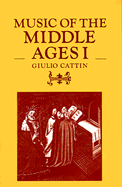Book contents
- Frontmatter
- Contents
- Abbreviations
- I THE ORIGINS OF CHRISTIAN WORSHIP; LITURGY AND CHANT
- II CHRISTIAN CHANT AT BYZANTIUM AND IN THE WESTERN CHURCHES
- III GREGORIAN CHANT
- IV LITURGICO-MUSICAL INNOVATIONS OF THE NINTH AND TENTH CENTURIES AND THEIR DEVELOPMENT; SECULAR MONODY IN LATIN
- V MONODY IN VERNACULAR LANGUAGES; INSTRUMENTS; THE ARS MUSICA
- READINGS
- Glossary
- Notes
- Bibliography
- Index
I - THE ORIGINS OF CHRISTIAN WORSHIP; LITURGY AND CHANT
Published online by Cambridge University Press: 04 April 2011
- Frontmatter
- Contents
- Abbreviations
- I THE ORIGINS OF CHRISTIAN WORSHIP; LITURGY AND CHANT
- II CHRISTIAN CHANT AT BYZANTIUM AND IN THE WESTERN CHURCHES
- III GREGORIAN CHANT
- IV LITURGICO-MUSICAL INNOVATIONS OF THE NINTH AND TENTH CENTURIES AND THEIR DEVELOPMENT; SECULAR MONODY IN LATIN
- V MONODY IN VERNACULAR LANGUAGES; INSTRUMENTS; THE ARS MUSICA
- READINGS
- Glossary
- Notes
- Bibliography
- Index
Summary
The evidence of the early Christian sources
No musical material from the early centuries of Christianity has survived to the present day, with the exception of an incomplete fragment of a hymn in Greek alphabetical notation (homoû pâsai …) discovered in the Oxyrhynchus papyrus 1786 and attributed to the second half of the third century ad. It is, therefore, impossible to gain a complete picture of the first developments in Christian chant from direct examination of sources.
It is the study of the earliest forms of liturgy which offers the only means of obtaining information on the distant origins of chant, and the broad outlines of such liturgy are familiar to us from the writings of the New Testament and the apostolic period, though in an incomplete and far from coherent form. Moreover, no other source can throw light on a phenomenon – that of primitive Christianity – which appears as such an anomaly in relation to the historical traditions of the Western world. The movement has often been called a ‘graft’, an image which expresses neatly the complete originality and novelty of a doctrine which arose and developed in the East according to cultural and religious traditions altogether foreign to those of the West, that is, to the synthesis of Greco-Roman civilisation. Past writers who have claimed that Christian chant derived in unbroken succession from Greco-Roman precedent were either unaware of, or else underestimated, the immense gulf created by the radical opposition between the Gospel (and the consequent new vision of God, man and the world) and pagan thought, even in its loftiest and most noble formulations, those of the philosophers.
- Type
- Chapter
- Information
- Music of the Middle Ages , pp. 1 - 20Publisher: Cambridge University PressPrint publication year: 1984



